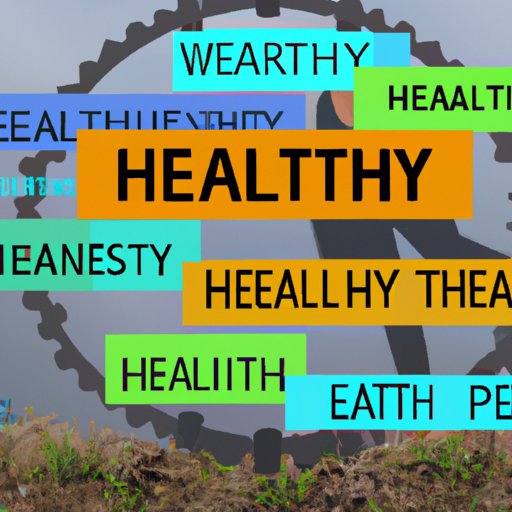Introduction
Health is a complex concept that has been defined in many ways by different sources. At its core, health is about achieving physical, mental and emotional well-being. It encompasses a range of factors, from diet and exercise to stress management and emotional intelligence. Understanding what it means to be healthy – and striving for optimal health – can have a profound impact on overall quality of life.

What It Means to Be Healthy
An overview of health and wellness begins with understanding the essential components of good health. Physical health refers to the body’s ability to function properly and includes eating a balanced diet, exercising regularly, getting enough sleep and managing stress. Mental health refers to the ability to think clearly and make sound decisions, and involves developing positive thinking habits, practicing mindfulness and connecting with others. Emotional health is about being able to recognize and process one’s feelings and reactions, practicing self-care and seeking support when needed.
A Comprehensive Guide to Physical, Mental and Emotional Health
Physical health is the foundation of overall health and wellness. Eating a balanced diet is key to maintaining physical health, as it provides the body with the nutrients it needs to stay strong and healthy. Regular exercise helps to keep the body fit and active, while also providing numerous other benefits such as improved mood and increased energy levels. Getting enough sleep is also essential for physical health, as it allows the body to rest and recharge. Managing stress is important for both physical and mental health, as high levels of stress can lead to a range of physical and psychological problems.
Mental health is just as important as physical health. Developing positive thinking habits, such as gratitude and optimism, can help to improve mental wellbeing. Practicing mindfulness can help to reduce stress and anxiety, while connecting with others can provide a sense of belonging and support. All of these can contribute to better overall mental health.
Emotional health is closely related to mental health, but involves recognizing and processing one’s feelings and reactions. Practicing self-care, such as taking time for yourself or engaging in activities that make you feel good, can help to manage emotions. Seeking support from friends, family or professionals when needed can also be beneficial.
A Look at the Positive Impact of Good Health
Good health can have a positive impact on overall quality of life. Improved physical health can lead to increased energy levels and improved mood, while improved mental and emotional health can lead to better decision making and more meaningful relationships. Good health can also reduce the risk of developing chronic diseases and other health problems.
Conclusion
In conclusion, health is a complex concept that involves physical, mental and emotional wellbeing. Eating a balanced diet, exercising regularly, getting enough sleep, managing stress and developing positive thinking habits are all essential components of good health. Additionally, recognizing and processing one’s feelings and reactions, practicing self-care and seeking support when needed can help to maintain emotional health. Ultimately, striving for good health can lead to improved quality of life, increased productivity and reduced risk of disease.


